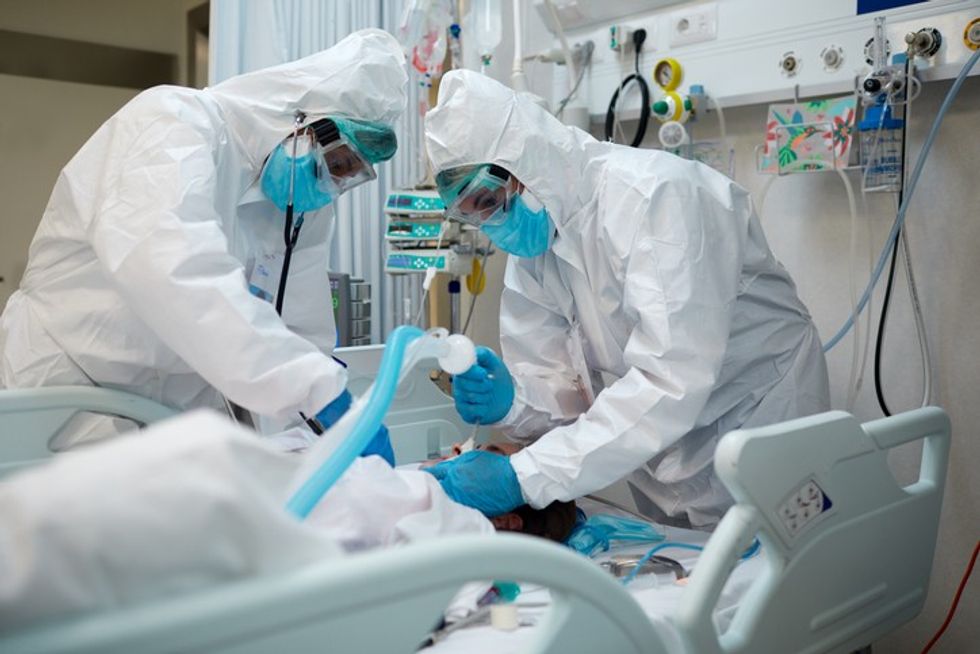A new covid variant, known as nimbus (scientifically NB.1.8.1), is causing concern among health experts as cases rise globally. The variant, a descendant of omicron, has been detected in several countries, including China, Singapore, Hong Kong, and the UK. While its symptoms are largely similar to previous covid strains, doctors have identified a distinctive new symptom: a razor blade sore throat, characterised by an intense stabbing pain when swallowing.
Experts warn that nimbus may be more efficient at infecting human cells than earlier variants, which could lead to increased transmission rates. Although there is no current evidence to suggest that it causes more severe illness than its predecessors, the rapid spread has raised concerns, particularly among vulnerable groups.
Symptoms of nimbus
Like previous Covid variants, nimbus presents with a range of symptoms, including fever, muscle aches, congestion, and shortness of breath. However, one symptom, in particular, is capturing attention—the razor blade sore throat. This sensation, described by medical experts as a sharp, stabbing pain at the back of the throat, makes swallowing extremely uncomfortable.
Other symptoms include redness in the throat, swollen neck glands, and general discomfort when eating or drinking. Some patients have also reported experiencing fatigue, headaches, and a persistent cough. While these symptoms may overlap with those of earlier variants, doctors emphasise that the severity and persistence of the sore throat are unique to nimbus.
Spread and concerns
Although only a small number of cases have officially been recorded in the UK, experts believe the actual spread of nimbus could be significantly wider. This is due to the decline in routine Covid testing since the height of the pandemic. According to UK Health Security Agency (UKHSA) data, the number of people testing positive for Covid has increased significantly in recent months. Reports indicate that infection rates have surged by 97% compared to figures recorded earlier in the year.
Virologists are warning that the number of Covid cases could continue to rise, particularly as summer approaches. Increased social interaction, crowded events, and holiday travel all create conditions for virus transmission. Professor Lawrence Young, a virologist at Warwick University, notes that while many respiratory viruses, such as flu, tend to subside in warmer climates, Covid continues to spread even in hot and humid weather. This makes it difficult to predict the scale of a possible summer wave.
Another concerning aspect is that population immunity, whether from vaccination or prior infection, appears to be waning over time. This means that even those who have had previous covid infections or vaccinations may still be at risk of catching nimbus.
Severity and vaccination
Laboratory studies suggest that nimbus is capable of infecting human cells more efficiently than previous strains. While there is no evidence indicating that it leads to more severe illness or higher fatality rates than earlier Covid variants, doctors stress that infection can still be dangerous for vulnerable individuals.
In May alone, Covid was a contributing factor in the deaths of over 300 people in England. The elderly, individuals with weakened immune systems, and those with pre-existing medical conditions remain particularly at risk.

Vaccination continues to be the strongest defence against severe illness. Experts say that current Covid vaccines, reformulated to target omicron-related variants, are expected to offer protection against nimbus. Research indicates that individuals who received a Covid booster jab as part of last spring’s vaccination campaign were 45% less likely to require hospital care following infection, compared to those who had not been vaccinated.
Global outlook
According to the World Health Organisation (WHO), nimbus now accounts for 10.7% of global Covid cases, a sharp increase from just 2.5% a month earlier. The UKHSA is closely monitoring its progression and is assessing its impact on public health.
Dr Gayatri Amirthalingam, deputy director of the UKHSA, has stated that the organisation is keeping track of all available data related to Covid variants in the UK and abroad. While nimbus has only been detected in small numbers in the UK so far, international data indicates that it is growing as a proportion of all Covid cases worldwide.
Preventative measures and vaccination eligibility
Health authorities continue to urge eligible individuals to receive their Covid vaccinations. In the UK, free vaccines are available for specific groups, including people aged 75 and older, care home residents, and those with weakened immune systems. This includes patients undergoing cancer treatment, organ transplant recipients, and individuals with genetic disorders that affect the immune system.
Getting vaccinated remains essential in protecting against severe illness and hospitalisation. While nimbus may not be more lethal than previous variants, experts emphasise that its ability to infect cells efficiently makes it highly transmissible. Vigilance, personal hygiene, and vaccination all play crucial roles in reducing the risk of infection.
The spread
The emergence of the nimbus variant is a stark reminder that Covid continues to evolve. While symptoms are similar to previous strains, the distinct razor blade sore throat is emerging as a defining characteristic of the latest variant. Experts warn that its ability to spread efficiently could lead to a summer surge in cases, particularly as population immunity declines.
Although there is no evidence that nimbus causes more severe illness than past variants, it remains a threat to vulnerable individuals. Health officials continue to recommend vaccination as the best means of protection. With the UKHSA closely monitoring its spread, staying informed and maintaining caution remain essential as the situation develops.





